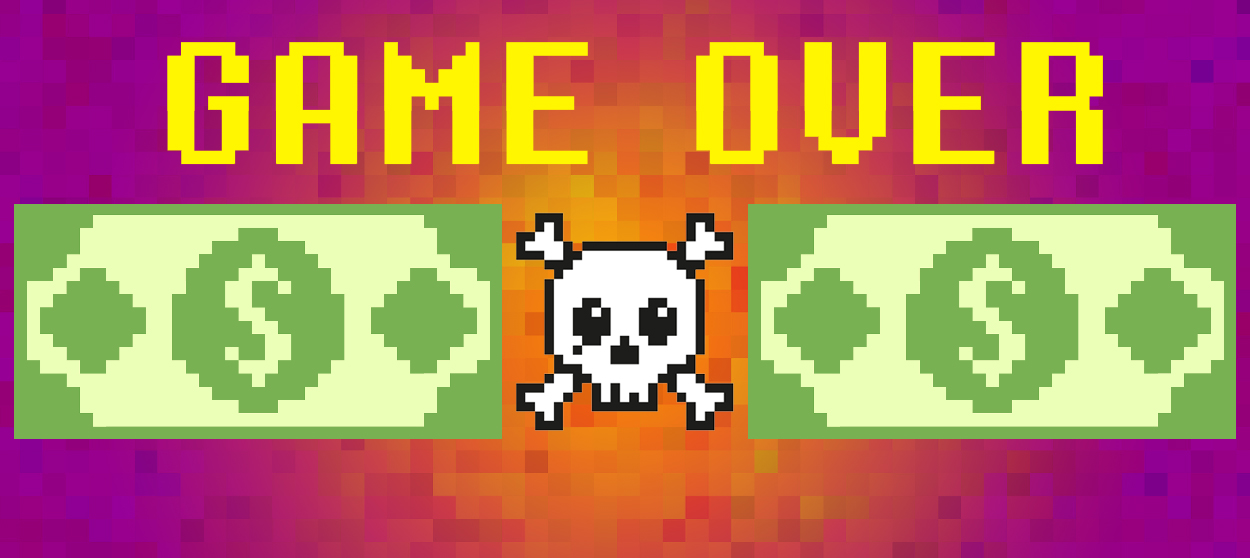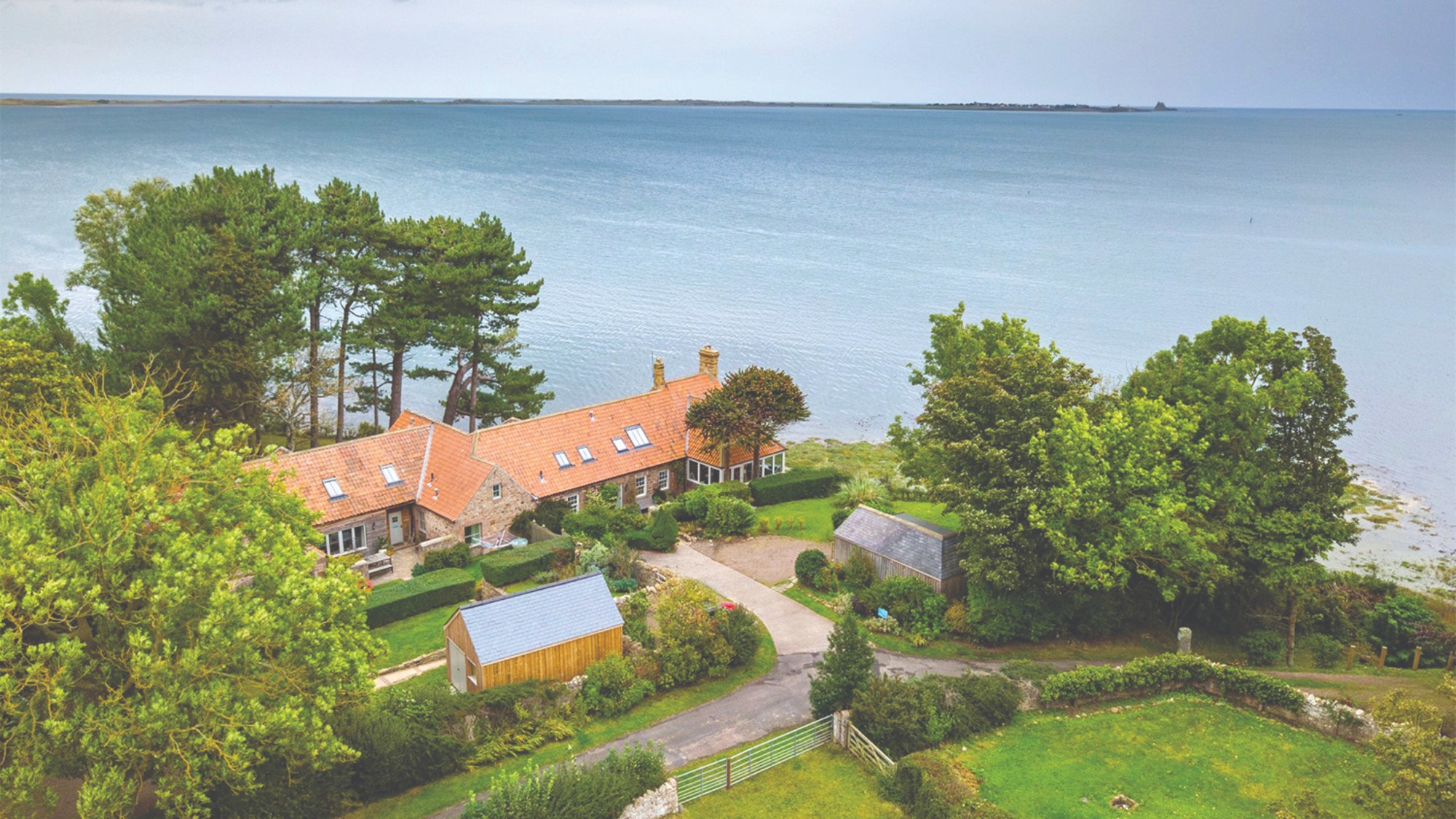How capitalism killed one of the best video game studios
Being a financial middleman is a lot easier than creating great art


A free daily email with the biggest news stories of the day – and the best features from TheWeek.com
You are now subscribed
Your newsletter sign-up was successful
Fifteen years ago, the game studio Valve released Half Life 2, a first-person shooter about a physicist fighting an alien occupation of Earth. The game was a smash hit, selling over 10 million copies and winning dozens of "game of the year" awards. Naturally, Valve planned a sequel, only this time broken into three parts. Episode 1 and Episode 2 duly followed in 2006 and 2007 respectively, which were both enormous successes as well.
But, to the bitter disappointment of eager fans, the third installment never came. Indeed, Valve — once one of the most artistically creative game studios in the world — has all but stopped producing games altogether. What happened? In a word: capitalism. Valve has mutated from a game developer into a ruthless financial middleman through its platform Steam, which has become the largest platform for digital game distribution — allowing them to make huge amounts of money while creating virtually nothing original themselves.
It took several years for this transformation to be completed. In 2007 Valve released Portal, an excellent puzzle game, and Team Fortress 2, a team-based shooter. They followed up with cooperative zombie survival games Left 4 Dead in 2008 and Left 4 Dead 2 in 2009. In 2011 they released Portal 2, and in 2013 Dota 2, a multiplayer battle arena game. All six were big successes.
The Week
Escape your echo chamber. Get the facts behind the news, plus analysis from multiple perspectives.

Sign up for The Week's Free Newsletters
From our morning news briefing to a weekly Good News Newsletter, get the best of The Week delivered directly to your inbox.
From our morning news briefing to a weekly Good News Newsletter, get the best of The Week delivered directly to your inbox.
For a few years after 2007, Valve co-founder and president Gabe Newell assured interviewers that the studio was working on Episode 3, and the company released a bunch of concept art to that effect. But then he clammed up, and the final installment never came. Indeed, innovative single-player games — what used to be Valve's bread and butter, starting with their groundbreaking first game Half Life in 1998 — have completely vanished from their output. They haven't produced one for eight years — Portal 2 was the last one up to this day.
Meanwhile, Valve's focus has quite obviously moved to Steam. The platform, which serves as a one-stop shop for gamers to buy and download titles from nearly every major game developer, reportedly made roughly $4.3 billion in revenue in 2017 (as it takes a substantial cut of every sale), up from $3.5 billion in 2016 — and that doesn't include revenue from downloadable content and "microtransactions" (that is, in-game purchases of cosmetic items and such). There is clearly a lot more money in being an Amazon-style distribution platform than in developing games. What's more, that money is a lot easier to make. First-mover advantage and network effects do most of the work for you.
At first glance, this seems somewhat odd. Surely it would be possible to run Steam and produce games — indeed, with the fat Steam profits Valve could generously fund its production department, and maybe even take bolder risks than they used to. Not producing Episode 3 surely meant tens of millions of dollars in foregone profits, not to mention millions more in abandoned development work and legions of infuriated fans. That's not exactly great business practice!
And besides, while the Half Life 2 series is great, it's not like it was some Proustian flawless masterpiece. A game that was basically similar to Episode 2 with a reasonably compelling story would have sold like hotcakes. Indeed, Marc Laidlaw, a former Valve writer who wrote most of the first two games in the series, published a thinly-disguised Episode 3 plot synopsis in 2017, which would have worked just fine.
A free daily email with the biggest news stories of the day – and the best features from TheWeek.com
So what gives? One factor is that a capitalist business mindset is badly corrosive to an artistic temperament. Running a platform is all about tweaking its setup to maximize revenue, even if that comes as the cost of lousy art. For instance, Steam has long had a wide-open policy to independent games, doing almost nothing to validate quality and not even that much to stop copyright infringement. The result, as Jim Sterling has covered extensively, was an absolute tsunami of atrocious "asset flips" (games made by slapping together pre-made assets from third-party stores) and other even worse garbage — like a game about a school shooting. Independent developers working on genuinely high-quality games have found their titles drowned in a sea of dreck on the platform. Valve itself even allowed an appallingly bad third-party Half Life game using Valve's own branding, engine, and assets to be published there.
The development of microtransactions is even more corrosive. Research demonstrates that most revenue from these purchases come from a tiny minority of players with impulse control problems (like children with their parent's credit card number). That leads to games deliberately designed like addictive drugs or gambling to hook the "whales" — things like restricting processes behind frustrating time gates that you can pay to unlock, or selling slot machine-style "loot boxes" which have a small chance to contain something good, or even simple "pay-to-win" mechanics, where the best items in the game simply must be bought. A great many awful mobile games are designed around these techniques.
Valve has clearly internalized a lot of this abusive capitalist mindset. The only major game it has released since Dota 2 is an online card game called Artifact, where one builds a deck by buying random card packs and individual cards on a secondary marketplace. It came out to middling reviews in late 2018 (one streamer quit after he spent $300 on cards and still couldn't even build two quality decks), and the player population has since fallen by about 95 percent.
Meanwhile, as Valve has stopped producing traditional games, it has hemorrhaged talent. No writers who worked on the Half Life series remain at the company.
Another factor may be simple lack of pressure to publish. In 2004 David Hodgson published a book called Raising the Bar about the development of Half Life 2, which was published after its release but written beforehand. In the foreword, Newell wrote that "I have the world's worst case of stage fright ... You, the reader, know how the launch of Half Life 2 went … Did we create a worthy successor to Half Life? Did we live up to gamers' expectations? Did we pull it off? You know, and I don't, and that seems terribly unfair to me right now."
Artists are often very anxious about how their creations will be received. A game studio which makes its money from selling games has no choice but to publish at some point. But one with a monopolist platform that essentially prints money can keep neurotically tweaking and polishing their work forever, until they either give up or their abilities rot away to nothing.
This situation may not last forever though, as other game companies are attempting to horn in on Steam's market share. Epic Games, publisher of the massive hit Fortnite, recently launched an "Epic Store," and has aggressively scooped up exclusive rights to tons of upcoming third-party games with both direct payments and a generous revenue split. Steam's quasi-monopoly may soon end — and that is probably a good thing. Even after 12 years, the Half Life property is one of the most valuable in the gaming market. Maybe it's time for Newell and company to remember why they got in the business in the first place.
Ryan Cooper is a national correspondent at TheWeek.com. His work has appeared in the Washington Monthly, The New Republic, and the Washington Post.
-
 Trump reclassifies 50,000 federal jobs to ease firings
Trump reclassifies 50,000 federal jobs to ease firingsSpeed Read The rule strips longstanding job protections from federal workers
-
 What to watch out for at the Winter Olympics
What to watch out for at the Winter OlympicsThe Explainer Family dynasties, Ice agents and unlikely heroes are expected at the tournament
-
 Properties of the week: houses near spectacular coastal walks
Properties of the week: houses near spectacular coastal walksThe Week Recommends Featuring homes in Cornwall, Devon and Northumberland
-
 The billionaires’ wealth tax: a catastrophe for California?
The billionaires’ wealth tax: a catastrophe for California?Talking Point Peter Thiel and Larry Page preparing to change state residency
-
 Bari Weiss’ ‘60 Minutes’ scandal is about more than one report
Bari Weiss’ ‘60 Minutes’ scandal is about more than one reportIN THE SPOTLIGHT By blocking an approved segment on a controversial prison holding US deportees in El Salvador, the editor-in-chief of CBS News has become the main story
-
 Has Zohran Mamdani shown the Democrats how to win again?
Has Zohran Mamdani shown the Democrats how to win again?Today’s Big Question New York City mayoral election touted as victory for left-wing populists but moderate centrist wins elsewhere present more complex path for Democratic Party
-
 Millions turn out for anti-Trump ‘No Kings’ rallies
Millions turn out for anti-Trump ‘No Kings’ ralliesSpeed Read An estimated 7 million people participated, 2 million more than at the first ‘No Kings’ protest in June
-
 Ghislaine Maxwell: angling for a Trump pardon
Ghislaine Maxwell: angling for a Trump pardonTalking Point Convicted sex trafficker's testimony could shed new light on president's links to Jeffrey Epstein
-
 The last words and final moments of 40 presidents
The last words and final moments of 40 presidentsThe Explainer Some are eloquent quotes worthy of the holders of the highest office in the nation, and others... aren't
-
 The JFK files: the truth at last?
The JFK files: the truth at last?In The Spotlight More than 64,000 previously classified documents relating the 1963 assassination of John F. Kennedy have been released by the Trump administration
-
 'Seriously, not literally': how should the world take Donald Trump?
'Seriously, not literally': how should the world take Donald Trump?Today's big question White House rhetoric and reality look likely to become increasingly blurred
